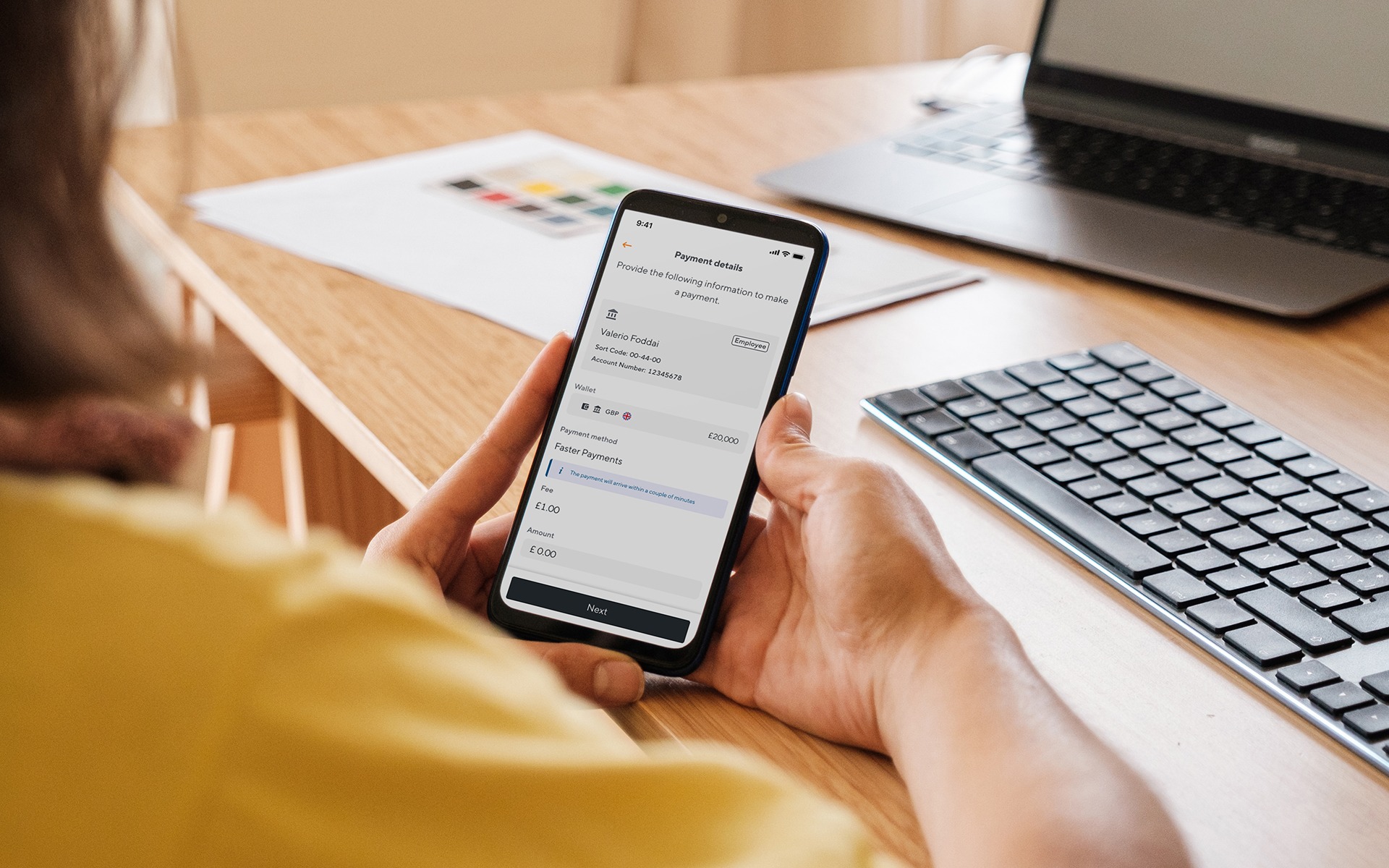Find out how to better manage petty cash in care homes
From keeping pantries well-stocked to managing petty cash, if you’re in charge of a care home’s finances Covid-19 has made a difficult job harder.
At Soldo, we’ve been speaking with care homes to understand their financial challenges and find ways we can help. Here’s what we’ve learned, and how we’ve implemented it in our spend management platform’s infrastructure.
What financial challenges has Covid-19 created for care homes?
Covid-19 has created three main challenges for care home finance teams:
- How do you distribute money quickly and safely?
- How do you manage spending when your ranks are swelling with temporary hires?
- How do you stay in control of your budget?
Soldo cards are actually helping us out at what is a very difficult time for everyone. They have given us the means to ensure that our staff always have access to money for purchasing items for our houses. They have become essential for us as a lot of shops are not taking cash at the moment. I can manage the spending and card restrictions from my house which is great. They have been a godsend!
Going cashless
The UK has been on the way to becoming a cashless society for several years — in 2019, only 30% of transactions involved cash. But many care homes still rely on physical notes and coins to buy daily necessities. Or at least they did so pre-Covid-19.
Diana Valentim, Finance Assistant of Cairn Mhor Childcare Partnership says: ‘We used to have a petty cash tin with notes and coins. When someone needed to buy bread or milk, they’d take what they needed from the tin.’
Once Covid-19 hit, the World Health Organisation recommended going cashless to avoid spreading the virus through contaminated banknotes. And while the UK hasn’t gone as far as burning or quarantining cash, ever more businesses are refusing cash.
This has left many care homes in a quandary. ‘Our spending has remained broadly at pre-Covid-19 levels,’ says Diana, ‘but now we often can’t buy what we need unless we have a card.’
The problem is that card payments aren’t necessarily a good fit.
When credit cards won’t work
High staff turnover is a fact of life in care homes, mainly due to low wages and the physical and emotional toll of the job. The National Care Forum reckons 73.5% of staff leave within two years.
Covid-19 has made the work riskier and more demanding. So, unsurprisingly, turnover is on the rise. SP&P’s Simon Parker says many care homes risk losing up to 50% of their staff in the coming months. Meanwhile, over 750,000 people have signed up as volunteers.
With so much churn, credit cards create more problems than they solve. Not only can reconciliation quickly become a bureaucratic nightmare. There are also serious visibility and accountability issues.
More to the point, credit cards have to be in someone’s name. And that’s not practical when your hiring situation is a revolving door.
Keeping a handle on cash flow
If anything can put pressure on cash flow, it’s a crisis. Generation CFO’s Christopher Argent says crises create ‘…sudden, immediate change to your incomings and outgoings…‘
To adapt effectively, you need visibility over your spending and the ability to act quickly. Sadly, this is easier said than done when:
- The way you pay for day-to-day needs – cash – is inherently manual
- There’s a constant ebb and flow of staff, making it harder to track spending
As Diana eloquently notes:
‘When Covid-19 happened we thought ‘Oh my goodness, what are we going to do? How will we get to the banks, access enough petty cash, and make sure it’s distributed where it’s needed most?‘
Diana Valentim, Finance Assistant of Cairn Mhor Childcare Partnership
Simplifying spend management with Soldo
Soldo for care homes is our spend management platform that meets the unique needs of care homes. It can:
- Replace cash with prepaid cards
- Distribute money to staff quickly
- Give you real-time visibility and control over your spending
How it works
Once you sign up, you can set up as many prepaid cards as you need. You can top cards up manually or set up automatic top-ups. And you can set spending limits, so you’re in control of how much each worker spends.
Crucially, cards don’t have to be in someone’s name. They can have a unique number or another identifier, such as ‘Kitchen’, for instance. This means you don’t have to issue a new card every time someone new comes aboard.
Getting visibility over your spending
Every card connects to a dashboard. This shows you what each staff member is spending, how much, and on what – in real time.
You can also:
- Set limits and adjust them on the fly. Have a tight food budget but spending less on outdoor activities? You can redistribute funds at the click of a button.
- Restrict what individuals can buy. So, for instance, you could allow carers who travel to patients’ homes – but not kitchen staff – to buy fuel.
- Lock individual cards after one transaction – useful for keeping tight controls on petty cash.
- Set up automatic transfers so a card is topped up at regular intervals or when its balance goes below a certain limit. The latter is handy if you’re using a card as a petty cash replacement.
Staff can also download an app to their phones. This shows what they can and can’t use the card for, which means new hires won’t have to constantly check in with you. Staff can also upload receipts, which cuts paperwork and simplifies reconciliation.
Soldo for care homes in action
Cairn Mhor originally used credit cards for expense management. But after an important worker left, they looked at alternatives.
Diana says: ‘We initially started using Soldo when a cook who worked between two of our homes left. We weren’t replacing him, so a credit card wasn’t going to work for us.’
As it happened, replacing named cards with numbered ones was a revelation: ‘The fact that we didn’t have to have a named person on the card made it really easy for us to order. Anybody in the house could take the card to the supermarket and buy what they needed.’
And while initially they restricted the cards so they could only be used for big shops, they started using the cards more widely after Covid-19.
‘Soldo was an absolute godsend to us.’ says Diana. ‘Typically, I’d have gone to the bank at the start of the week, withdrawn cash, and issued it to houses individually. A manager would then have to come to sign for it.
‘Now I can log on to the dashboard from home, top up cards when needed, and I can put a restriction if necessary so staff can only buy allowed items.
‘And, best of all, I set it up in a single afternoon!‘
An additional benefit to employees having their own cards, Diana told us, is that they can quickly buy PPE as soon as they find it.
From crisis springs opportunity
Covid-19 has made care homes’ crucial, delicate job more difficult. But if there’s a silver lining, it’s that there’s never been a better time to simplify spend management for both you and your staff.
With Soldo, we hope we can make your job as easy as possible, so you can focus on what matters — caring for and improving the lives of the most vulnerable.








